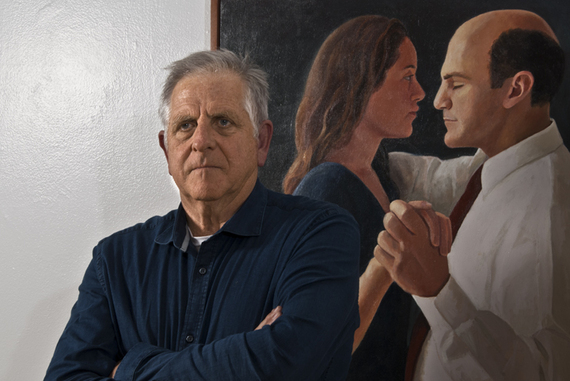The deadly truth about loneliness
Almost all of us have experienced loneliness at some point. It is the pain we have felt following a breakup, perhaps the loss of a loved one, or a move away from home. We are vulnerable to feeling lonely at any point in our lives.
Loneliness is commonly used to describe a negative emotional state experienced when there is a difference between the relationships one wishes to have and those one perceives one has.
The unpleasant feelings of loneliness are subjective; researchers have found loneliness is not about the amount of time one spends with other people or alone. It is related more to quality of relationships, rather than quantity. A lonely person feels that he or she is not understood by others, and may not think they hold meaningful relationships.
For some people, loneliness may be temporary and easily relieved (such as a close friend moving away, or a spouse returning home after a work trip). For others, loneliness cannot be easily resolved (such as the death of a loved one or the breakup of a marriage) and can persist when one does not have access to people to connect with.
From an evolutionary point of view, our reliance on social groups has ensured our survival as a species. Hence loneliness can be seen as a signal to connect with others. This makes it little different to hunger, thirst or physical pain, which signal the need to eat, drink or seek medical attention.
In affluent modern societies, however, turning off the alarm signals for loneliness has become more difficult than satisfying hunger, thirst or the need to see the doctor. For those who are not surrounded by people who care for them, loneliness can persist.
Researchers have found social isolation is a risk factor for disease and premature death. Findings from a recent review of multiple studies indicated that a lack of social connection poses a similar risk of early death to physical indicators such as obesity.
Loneliness is a risk factor for many physical health difficulties, from fragmented sleep and dementia to lower cardiovascular output.
Some individuals may also be biologically vulnerable to feeling lonely. Evidence from twin studies found that loneliness may be partly heritable.
Multiple studies have focused on how loneliness can be a result of certain gene types combined with particular social or environmental factors (such as parental support).
Loneliness has largely been ignored as a condition of concern in mental health. Researchers have yet to fully understand the extent of how loneliness affects mental health. Most studies of loneliness and mental health have focused solely on how loneliness relates to depression.
Although loneliness and depression are partly related, they are different. Loneliness refers specifically to negative feelings about the social world, whereas depression refers to a more general set of negative feelings.
In a study that measured loneliness in older adults over a five-year period, loneliness predicted depression, but the reverse was not true.
Addressing loneliness
Loneliness may be mistaken as a depressive symptom, or perhaps it is assumed that loneliness will go away once depressive symptoms are addressed. Generally, “lonely” people are encouraged to join a group or make a new friend, on the assumption that loneliness will then simply go away.
While creating opportunities to connect with others provides a platform for social interaction, relieving the social pain is not so straightforward. Lonely people can have misgivings about social situations and as a result show rejecting behaviours. These can be misconstrued as unfriendliness, and people around the lonely person respond accordingly. This is how loneliness can become a persistent cycle.
A study examined the effectiveness of different types of treatments aimed at addressing loneliness. The results indicated that treatments that focused on changing negative thinking about others were more effective than those that provided opportunities for social interaction.
Another promising way to tackle loneliness is to improve the quality of our relationships, specifically by building intimacy with those around us. Using a positive psychology approach that focuses on increasing positive emotions within relationships or increasing social behaviours may encourage deeper and more meaningful connections with others.
Indeed, even individuals who have been diagnosed with serious mental illness have reported improvements in their well-being and relationships after sharing positive emotions and doing more positive activities with others. However, research using a positive psychology approach to loneliness remains in its infancy.
We continue to underestimate the lethality of loneliness as a serious public health issue. Contemporary tools such as social media, while seeming to promote social connection, favour brief interactions with many acquaintances over the development of fewer but more meaningful relationships. In this climate, the challenge is to address loneliness and focus on building significant bonds with those around us.
The growing scientific evidence highlighting the negative consequences of loneliness for physical and mental health can no longer be ignored.
Michelle H Lim, Lecturer and Clinical Psychologist, Swinburne University of Technology
This article was originally published on The Conversation. Read the original article.


